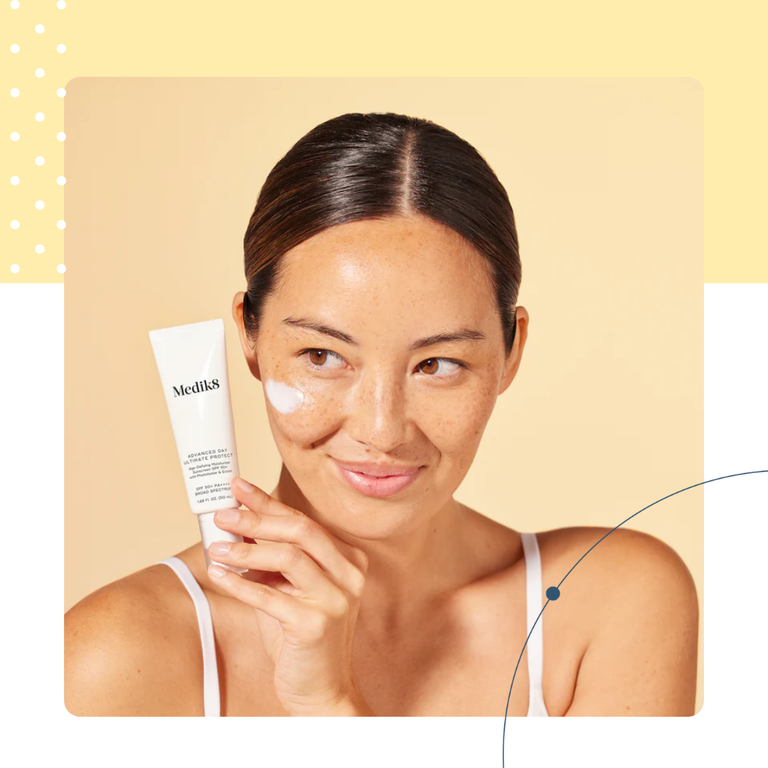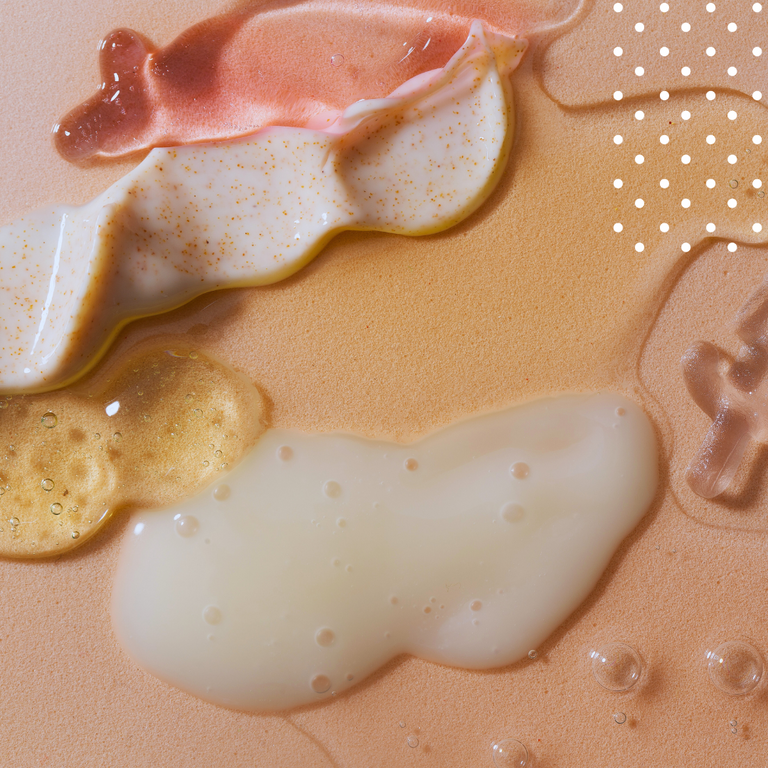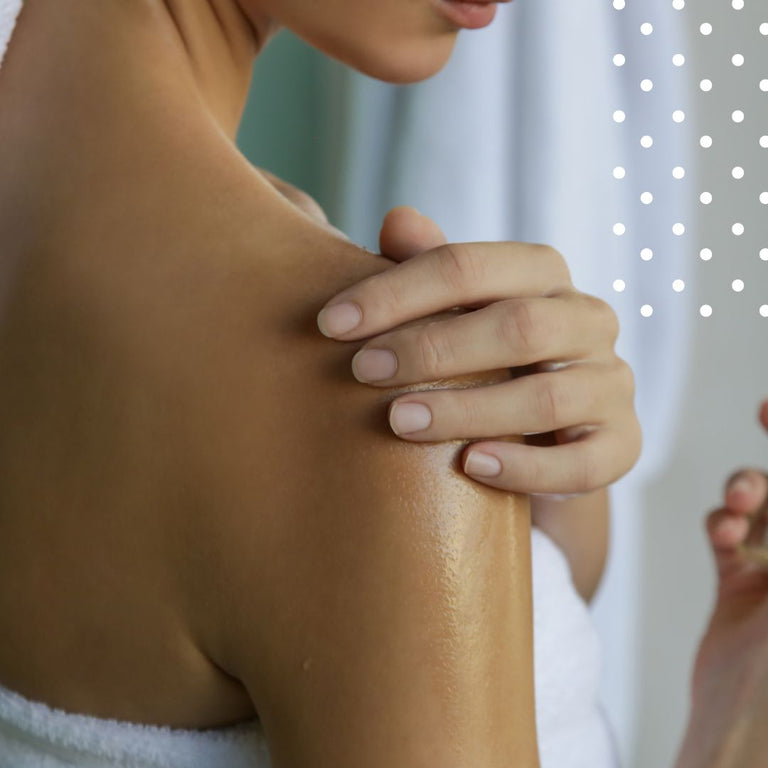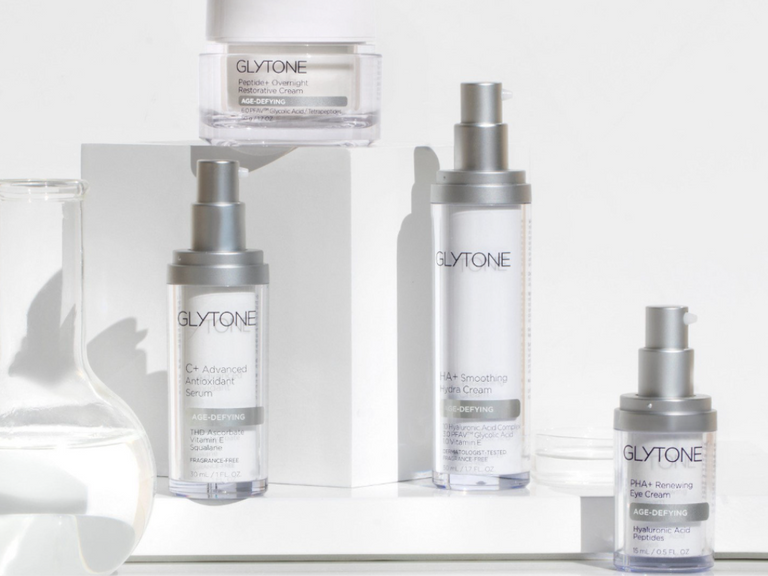Ceramides can work wonders in your skincare routine, but not many people know about them. They can boost moisture in dehydrated skin, reduce signs of ageing and help anyone get a more dewy healthy complexion.
Here at Face Dr, our team of skin experts have decades of experience and are passionate about helping our clients get clear, healthy skin. That’s why we want to help you get to grips with the best skincare ingredients out there. We’re going to share everything you need to know about ceramides, so you can decide if adding this moisture-boosting anti-ageing ingredient to your skincare routine is right for you.
Here’s what we’ll cover:
- What ceramides are
- What ceramides do for the skin
- How to use ceramides
- Who should (and shouldn’t) use ceramides
- The side effects of ceramides
- The top products to try with ceramides
Curious about how other skincare ingredients work like hyaluronic acid or antioxidants? We’ve covered those, too.
What are ceramides?

Ceramides are lipids, or fats, that are made naturally in our skin. You can find them in the body, but also in foods—like sweet potatoes and brown rice—and in beauty products like shampoos and make-up. Plus, they’ve become more and more popular in skincare products.
As we age, our skin makes less and less ceramides over time. Other things can also cause our skin to have a lower than ideal amount of the compound.
These things include:
- Pollution
- Over exfoliating
- A poor diet
- UV damage
- Cold, dry air in the winter
Ceramides play an important role in the structure of our skin. They help to hold skin cells together, almost like a glue, and they keep our skin’s natural protective barrier strong and working properly. In fact, ceramides make up about 50% of the outer layer of our skin.
When we don’t have enough ceramides in our skin, our protective barrier becomes damaged which can then easily let irritants in and moisture out. This leads to everything from signs of ageing to dehydrated skin, rough texture and a sallow skin tone. Plus, the skin is much more easily irritated and just not as healthy as it should be.
Luckily, we can top up our natural stores of ceramides through skincare products.
What do ceramides do for the skin?
Now you know ceramides make up the skin’s natural barrier, what can adding ceramides to your skincare routine actually do for you? Here’s how the ingredient can help.
Ceramides can:
- Help the skin hold onto moisture
- Plump and firm the skin
- Smooth lines and wrinkles
- Reduce rough patches and soften the skin
- Boost radiance for a dewy glow
- Reduce redness and signs of irritation
How do you use ceramides?
Ceramides can be found in everything from moisturisers to serums, masks to cleansers. Most of the time though, you’ll find ceramide-enriched moisturisers. That’s because the ingredient works best as a final step in your skincare routine—although before sunscreen in the morning—to lock in moisture and help protect the skin. Simply apply a ceramide-rich cream after cleansing or using a serum, twice a day.
Face Dr top tip: ceramides need to be kept away from sunlight and not exposed to too much air as both these things can decrease the effectiveness of the ingredient. Look out for products that come in opaque airtight bottles.
Who can use ceramides?
Ceramides are suitable for all skin types, even sensitive. As they can help to boost hydration and the skin’s natural protective barrier, they’re much more effective for those with dry and dehydrated skin.
Some research even shows that those who suffer with skin conditions like eczema and psoriasis actually have lower levels of ceramides in their skin than others, so topping them up can really help how your skin looks and feels.
Those who suffer with acne may also have lower levels of ceramides, so can also benefit from adding the ingredient to their routines.
Ceramides are also great for those looking to reduce the signs of ageing, as they can help top up your natural supplies of the ingredient and keep the skin looking plump and dewy.
However, even if you don’t have dry, acne-prone or mature skin, you can still see results from using ceramides. It’s even been proven to be effective for those with super oily skin, too.
Face Dr top tip:
- Those with dry skin should look for a thicker cream with ceramides
- Those with acne-prone or oily skin should look for an oil-free serum or lighter cream
Who can’t use ceramides?
Everyone should be able to use ceramides. Those with sensitive or acne-prone skin, or those with skin conditions like eczema or psoriasis, usually have to be the most careful with new ingredients. But these are the exact people who could actually see the most improvement from including this ingredient in their skincare routine.
Which ingredients should you avoid if you’re using ceramides?
Luckily, ceramides play nicely with other skincare ingredients, so you don’t need to worry when introducing it into your skincare routine. You can continue to use everything from retinol to AHAs and BHAs in your routine and shouldn’t get any trouble from mixing these ingredients. In fact, you may even find some products already contain a mixture of these.
As always, the best way to know if a skincare ingredient is right for you is by speaking to an expert. We offer free skincare consultations where you can speak with a member of our team who can recommend the best products and routine to use.
What are the side effects of using ceramide?
As ceramides in skincare are a version of something our body naturally makes, there are usually no side effects from using them in skincare products. In fact, if you do have a reaction, it’s much more likely to be due to an added fragrance or another irritating ingredient in a product than ceramides.
This is why it’s always a good idea to check the ingredients list of any new product you try, especially if you have sensitive skin. Plus, be sure to patch test a new product about 24 hours before you start using it. Simply swipe a small amount of the product on your wrist or inside your elbow, then check for redness or signs of irritation about 24 hours later before using the products fully.
Products to try with ceramides
You’ll most often find ceramides in moisturisers, but they can also be found in serums, masks and even daily cleansers. Here are some products to try:
Face Dr top pick:
- ZO Skin Health Recovery Crème - A nourishing cream with ceramides to strengthen the skin’s protective barrier, boost moisture and smooth lines and wrinkles.
- Clinic Skin Vitamin C Pro-Collagen Serum - A powerful antioxidant formula designed to firm, brighten, and even out skin tone.
You could also try:
- iS Clinical Sheald Recovery Balm
- Paula’s Choice Clinical Ceramide-Enriched Moisturiser
- La Roche-Posay Effaclar H Moisturiser
Face Dr top tip: ceramides aren’t always listed as “ceramides” on ingredients labels. Look out for phytosphingosine and sphingosine, both of which help the skin make more ceramides of its own.
Get tailored advice

Now you know what ceramides are and what they can do for your skin, it’s time to add them to your routine. Not sure where to start? That’s where we can help. Here at Face Dr, we offer free online consultations with one of our skin experts.
In a 30-minute video call, we can analyse your skin and ask about your skincare concerns. Then, our experts will be able to give you tailored recommendations to help get your skin healthy and glowing. Plus, we can help to build the perfect skincare routine with ceramides to tackle anything from dry skin to signs of ageing. We only ever recommend brands we know and trust, so you can skip the experimentation and start using an expert-approved brand straight away.







